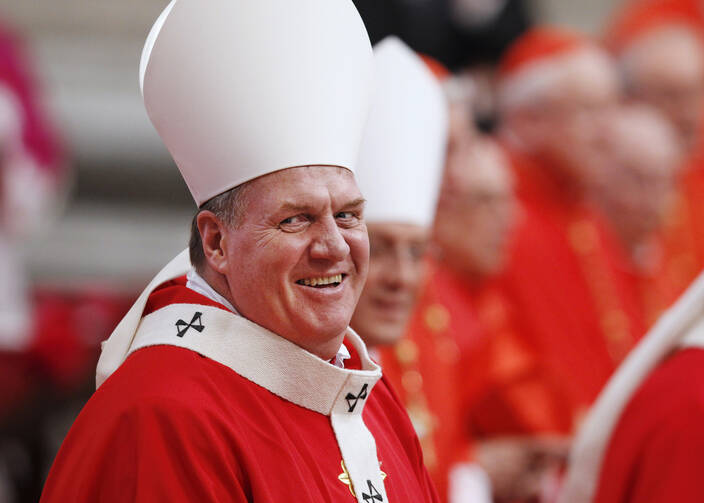Pope Francis will create 17 cardinals from 14 countries on Nov 19, including 13 electors from 11 countries. Three of the electors are from the United States: Blase Cupich (Chicago), Kevin Farrell (formerly of Dallas and now prefect of the Dicastery for the Laity, Family and Life) and Joseph Tobin (Indianapolis).
In a surprise move, expressing again his concern for the people in “the beloved and martyred Syria,” Francis will give the red hat to the Italian born nuncio to that country, Archbishop Mario Zenari, whom he said will remain at his post there. He is the only new Italian added to the college of electors with a right to vote in a conclave.
Five of the new cardinals are from Europe but only three are electors (that is under the age of 80 with the right to vote in a conclave): Carlos Osoro Sierra, the archbishop of Madrid (Spain), Jozef De Kesel, archbishop of Malines-Bruxelles (Belgium), and Archbishop Zenari, the nuncio in Syria. The other two are not electors as they are over the age of 80: Msgr. Renato Corti, archbishop emeritus of Novara (Italy) and Father Ernest Simoni, a priest of the archdiocese of Shkodrë-Pult in Albania, who spoke during the pope's visit to Tirana.
Three are Latin Americans (including Mexico): Sérgio da Rocha, archbishop of Brasilia (Brasil), Baltazar Enrique Porras Cardozo, archbishop of Mérida (Venezuela), Carlos Aguiar Retes, archbishop of Tlalnepantla (Mexico).
Africa will have two new cardinals but only one is an elector: Dieudonné Nzapalainga, C.S.Sp., archbishop of Bangui (Central African Republic), the first cardinal from this country. The other is Sebastian Koto Khoarai, O.M.I, bishop emeritus of Mohale’s Hoek (Lesotho)—also the first cardinal from this country.
Three are from Asia but only two are electors: Patrick D’Rozario, C.S.C., archbishop of Dhaka (Bangladesh)—the first cardinal from this country, and Maurice Piat, archbishop of Port Louis (Island of Mauritius), also the first cardinal from this island. The third is Anthony Soter Fernandez, archbishop emeritus of Kuala Lumpur (Malaysia), who becomes the first Malaysian cardinal.
Oceania also gets a new cardinal: John Ribat, M.S.C., archbishop of Port Moresby (Papua New Guinea).








